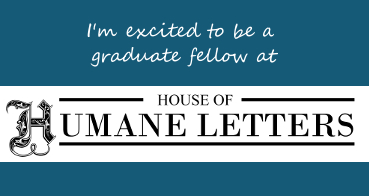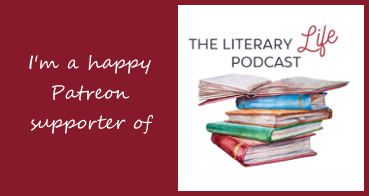“Wow! that was very thoughtful of you!”
“Oh, it was nothing, I’m only Human.”
“Way to see the potential consequences of your actions and choose to act differently.”
“Oh, it was nothing. I’m purely Human.”
“You planned an awesome party for Joe’s retirement.”
“Oh, it was nothing. I’m entirely Human.”
“That was quick. Good job on consulting the map and checking that Facebook group for road conditions.”
“Oh, it was nothing. I’m essentially Human.”
“You’ve sure lost a lot of weight and gotten into shape. You’re really awesome to be that disciplined!”
“Oh, it was nothing. I’m exclusively Human.”
“It never fails; you are always on time for work. You’re getting the employee of the year award.”
“Oh, it was nothing. I’m wholly Human.”
“Thank you for remembering my birthday. That was very kind.”
“Oh, it was nothing. I’m utterly Human.”
“It’s really something how you’ve been nearly 50 years playing piano and are now learning a whole new system with cello — new fingering, sustaining notes, bowing. It can’t be easy to retrain the mind and body at 56!”
“Oh, it’s nothing. I’m completely Human.”
***************************************************
Those are some simple things that come to mind in a quick experiment with a twist on the usual usage of You’re/I’m ‘only human’, which is usually preceded by an error/sin committed. This was inspired by the following observation of Francis A. Schaeffer in The God Who Is There:
When we use the phrase “it is only human,” we are usually referring to something sinful. In this sense, the Christian should feel a calling not to be “human”; but in a more profound sense, the Christian is called to exhibit the characteristics of true humanity, because being a man is not intrinsically being sinful man, but being that which goes back before the Fall, to man made in the image of God.
Therefore, Christians in their relationships should be the most human people you will ever see. This speaks for God in an age of inhumanity and impersonality and facelessness. When people look at us their reaction should be “These are human people”: human because we know that we differ from the animal, the plant and the machine, and that personality is native to what has always been. This is not something only to put forward intellectually — when people observe us their reaction should be ‘These are human people!”
If they cannot look upon us and says, “These are real people,” nothing else is enough. Far too often young people become Christians and then search among the church’s ranks for real people, and have a hard task find them. All too often evangelicals are paper people.
What does it really mean to be human? For believers, how are we made in the image of God? How do we differ from the animals, plants, and machines? What is personality? Even if you are not of the Judeo-Christian tradition and have no belief in the Hebrew and/or Christian scriptures, with honest observation and study you have to acknowledge that human beings have capabilities that the other animals and plants do not share. With my examples above I tried to demonstrate some abilities that I think are uniquely human. And even if some animals do share aspects of algorithmic and reflective minds, as Jack noted when I asked him to quickly name ways that humans are different from other animals, surely it is obvious that humans are at a higher (and more complex?) level of these skills. And please tell me that you believe we have thinking and acting abilities that the rocks and trees do not have.
David marveled at being human with his “I am fearfully and wonderfully made” in Psalm 139. Charlotte Mason chose the motto I am, I can, I ought, I will for her students. I am human. I can do so many things as a human. I have a conscience. I can discern right and wrong. I can be determined to do what I ought and make it happen. Humans make mistakes, yes, and humans can own up to those mistakes and correct those mistakes. Humans can determine that they are overweight and out of shape and can make a decision to change their diet and exercise; they can plan out that new regime and make it happen. Humans don’t have to just rely on instinct to know when to build their nest or fly south for the winter; they can make plans and schedules and stick to them; they can organize their home, maintain their home, their car, their stuff. They can will to be better at organizing and maintaining. And they can change for the better. Humans can remember birthdays and anniversaries. They can be considerate and get out of the way when a car is coming is down the Walmart parking lane, or stop their car as a pedestrian crosses at the crosswalk. Humans can learn a language and another language and another language. They can learn to read and to sing and to draw and to roller-skate. Humans can remember to pay their debts. Humans can be compassionate and generous and help others with money, food, shelter, clothing. Humans can know exactly what time it is and be on time for work, for school, for a meeting, for a party. Humans can keep a promise. Humans can think before they make a promise.
Humans can choose. To change. To be kind. To be honest. To be responsible. To love. To forgive. To remember.
So why has humankind, for the most part, chosen to think of being ‘only human’ as being weak and faulty? We’ve gotten to the point of thinking not only ‘to err is human’, but that to be ‘human is to err’. Christians believe that God and Christ are gracious; they have shown unmerited favor and forgiven, and grace continues to cover sin. Oh, yeah, I can mess up and grace will just abound. ‘By no means!’ the apostle Paul said. In fact, it was that ‘unearned favor’ of God and Christ that compelled Paul to overcome. ‘His grace to me was not without effect. No, I worked harder than all of them…’ he told his readers in Corinth. He told Titus that this grace taught them to say No to the bad and to choose to live sensible and upright lives. Humans can choose. Humans can overcome.
Perhaps, when caught in an error, rather than responding with ‘I’m only human,’ we should say, ‘Sorry. I was acting less than human.’ ‘I was operating below my human capabilities to choose what I know to be right.’ ‘I was ignoring my glorious human ability to learn a new skill….to learn a new way…. to learn to think and act differently.’
I choose to Celebrate my humanness. I choose to think about what all it means to be Human, and to live that out to my fullest potential — which is a lot — probably more than I even know at this point. I choose to believe, like King David, that I am ‘fearfully and wonderfully made.’
And God saw everything that he had made, and behold, it was very good.






